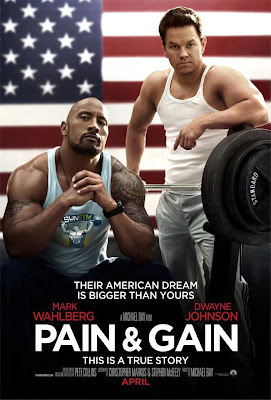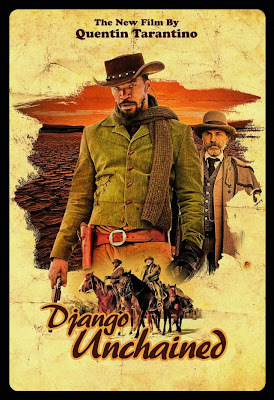Plain ‘Jane Eyre’ Has A New Good Looking Adaptation
Jane Eyre = 3 ½ out of 5
Edward Rochester: Your gaze is very direct Ms. Eyre, do you think me handsome?Jane Eyre: No sir.Edward Rochester: You’re afraid of me.Jane Eyre: I’m not afraid.
Jane Eyre is the umpteenth adaptation of the famous English novel by Charlotte Bronte. Strangely, this latest version features the most explosions and gratuitous sex scenes yet. That is a lie; this version of the film is very focused on its visuals. Along with some very good cinematography, the film moves along through visual plot development, as opposed to relying on voiceover narration. While I can admire a film, drenched in the Victorian England atmosphere, making it up to me to follow all that is going on, there is also the factor of how invested I felt I wanted to be in the film. Despite fine performances, among other factors, I still remained fairly indifferent towards this film overall, but that doesn’t mean I can’t admire what is being presented.
Jane Eyre plays around with its continuity a little bit, but after an extended prologue that will come into play later on, the film straightens out. After experiencing a bleak childhood, complete with harsh relatives (including Sally Hawkins as her spiteful aunt) and very strict schooling, Jane Eyre (Mia Wasikowska) goes out in the world to become a governess. Set in Victorian England, Jane begins work in the house of Thornfield Hall. There she meets Mrs. Fairfax (Judi Dench), an elderly widow and housekeeper, who is also seemingly the first person who treats Jane with respect. The master of the house, Mr. Edward Fairfax Rochester (Michael Fassbender), eventually encounters Jane as well.
Rochester is cold, abrupt, and brooding, but finds Jane to be quite unique in the way she addresses him. Rochester is also quite aware of his rugged handsomeness versus Jane’s plainness, but that does not stop him from acknowledging his affections for Jane. Jane soon finds herself falling for Rochester, but there is a mysterious side to him, that may not be to the delight of anyone. A detour also has Jane winding up in the house of clergyman St. John Rivers (Jamie Bell), for a time, which only seems to complicate things further, once more is revealed.
Mia Wasikowska is growing on me. After hearing how good she was on the HBO series In Treatment, I was disappointed to find her as one of the weaker elements in Alice in Wonderland. Then, she returned in the wonderful film, The Kids Are All Right, which made me looking forward to seeing her future roles. Here, she is quite good as the conscientious Jane Eyre. The way she interacts with the different characters of different class and gender is done well enough to create a fine ease with those she can easily speak to and be more on edge take to those she cannot. It is all in the way Jane presents herself in the story, which is to the benefit of the film.
Not much else to be said about the great Michael Fassbender, who is bound to become a huge star by this year’s end, given the number of projects he is involved in (including X-Men: First Class). It is the attitude that Fassbender manages to bring to Rochester that works very well in the film. He has a way of being very forward and surly, as well as mysterious, which is one of the few aspects that kept me intrigued to learn more of his story as the film unfolded. It is also hard not to like Judi Dench, as she is an old pro at making scenes feel more interesting. Jamie Bell’s role in this film follows what the character is supposed to be in the novel; however, I tend to like Bell’s stronger character work in other films, and here he is tasked with playing a pretty whiny character. It is what is required, but I still found it off putting.
The film was directed by Cary Fukunaga, who previously directed the acclaimed Honduran drama, Sin Nombre. For this film, Fukunaga brings a dash of horror like filmmaking to the story. It is enough to keep the film in a fairly somber mood throughout, and it certainly gets you to feel for Jane. It also keeps a subtle layer of suspense, which is aided by the score as well, and seems to attempt to bridge a gap between a period film such as this and the notions of a light thriller. Not being one who is well versed in the story by Charlotte Bronte, beyond a recollection of the plot and the knowledge of the many other adaptations, I am not quite sure how effective the direction reflects the source material. Still, it was made well enough to be quite visually interesting and very stunning in some of the cinematography that has been presented.
Really, what it came down to in how I would assess this film is how involved I was with it and how affecting it felt to me afterwards. I can say that I was certainly intrigued by the performances and look of the film, but reflecting on it, I cannot say that I was engaged enough by what I had gathered from this story to really praise it. Writing this now, it has been more than a week since I saw the film, and I have barely thought of it since. I am aware of the cuts that this film made from the original novel, but I am not really sure if that would have made much of a difference to me. Seeing it for the imagery was good enough and Fassbender is an actor I am a big fan of, but I was not as absorbed in the film as I would have liked to have been to really sing its praise. Probably good for fans of the novel, or at least completionists looking to see every adaptation.
Mrs. Fairfax: This is a grand, old house, but it can be a little…dreary.













Comments
Post a Comment